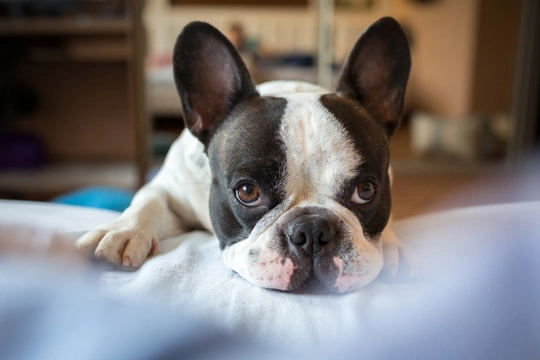
Does Neutering Reduce Anxiety in Male Dogs?
Unless you own a good quality and in-demand pedigree dog that you intend to breed from or put to stud, neutering should be a standard responsibility of pet ownership, and there is no good reason to avoid neutering otherwise unless your vet advises against it for a good reason.
However, even if you have deliberately planned to keep your dog intact, there may come a stage further down the line when neutering becomes a good option, such as if your dog’s breeding career is over or you have decided for whatever reason not to keep them intact for breeding.
Even if you really do want to use your male dog for breeding, in some situations you might need to accept that this is not in the best interests of the dog or their puppy-such as if your dog is found to have a congenital health condition, behavioural problem, or is hard to manage.
Neutering your male dog has a range of positive impacts upon both their lifelong health and wellness and sometimes, behaviour and temperament too-and it can in fact greatly help to reduce canine anxiety.
If your intact male dog is very highly strung and tends to be sensitive and anxious about things, they may not be the best choice for breeding, even if their appearance and breed credentials are second to none. In this instance, neutering them may be the right solution, because this can help to calm them down and help greatly with anxiety, which is inextricably linked to hormone levels in intact dogs.
In this article, we will examine how neutering a male dog can help to curb common behavioural problems that rarely affect castrated dogs, and how neutering can reduce male dog anxiety. Read on to learn more.
Situational anxiety
If your dog’s living situation, care and environment are unsettled, sub-par or otherwise inappropriate, the chances are that the dog in question will be anxious and fretful, and this is true for both male and female dogs regardless of their neutering status. Neutering will not fix any of these problems, and in such cases, the necessary changes must come from the dog’s management, routine and lifestyle-but for dogs that tend to be anxious in general regardless of their living situation and care, neutering can help a lot.
Anxiety in intact male dogs
The behaviour and temperament of an intact male dog differs from that of a neutered male in a wide variety of ways. Unneutered males are strongly driven by their hormones and testosterone levels, which are in turn amplified by being within scenting range of a bitch in season, and the behaviours, temperament and personality of an intact male dog are all strongly tied to their reproductive urges.
Intact males are more likely to be dominant, roam or wander off, display inappropriate sexual behaviour and be more easily distracted than neutered males, and they are also more likely to see other male dogs, usually other intact males, as a challenge, which can lead to fighting.
All of these things can lead to anxiety for the dog in question, and additionally, the more dominant nature of an entire male can make it hard in some cases for them to establish themselves in a secondary pack position below their human handlers. Feeling like the alpha is not just about power, but also responsibility-so if your male dog thinks they are the head of the household and so, responsible for the care and protection of the rest of their family, this can generate a lot of anxiety in itself, which can lead to behavioural problems.
How neutering can reduce male dog anxiety
Neutering a dog at any age can help to reduce their anxiety, as their drive to breed and all of the other factors that are prominent in the life of the intact male-such as defending, seeking a mate, and guarding their pack-will reduce exponentially.
Peaking reproductive hormones in the intact male triggers an irresistible desire to find a mate and breed with them, and if your dog is unable to do this (and generally, this is the case due to planned breeding and responsible dog ownership) they will become very anxious and unsettled.
Neutering will also help to greatly reduce the dog’s territorial urge to defend their home and family from other dogs and people, although for certain guarding breeds like the Rottweiler, the urge will still remain, regardless of sex and neutering status, because some dog breeds are simply natural guard dogs.
The drop in testosterone production brought about by neutering too will help to moderate many different elements of your male dog’s behaviour, including a dominant streak and overly pushy and even aggressive behaviour.
It is important to note that neutering the dog does not change who they are, or take away part of their personality-but it does help them to become less prone to suffering from the vagaries of their hormone levels and the effect that other dogs have on them.
Additionally, neutering is not in itself a miracle solution, and will not necessarily stop behaviours that have become habit, or that are inherent in the dog and their breed-but it can make the life of both the dog, and the people that care for them, easier and more stable.



